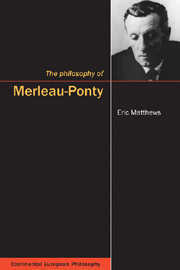5 - Self and Others
Summary
By means of his method of doubt, Descartes arrived at a basis for certainty of knowledge in the cogito (“I think, therefore I am”); the very possibility of achieving certain knowledge depended on starting from one's own conscious thoughts, which were both transparent (immediately self-revealing) and private (accessible only to the individual whose thoughts they were). There is an element of truth, Merleau-Ponty thinks, in this Cartesian return to the self. It is clearly true, for instance, that we can only have experience of objects if we are ourselves conscious subjects of experience, and if we distinguish between ourselves as subjects and an objective world that transcends our subjective experience of it. But consciousness is necessarily reflexive; to be conscious of anything else is also to be conscious of oneself as experiencing it. A love that was not conscious of itself, he says, would be a contradiction in terms, as would an unconscious thought or will. So our experience of the world does, as Descartes implied, require as a starting-point our awareness of ourselves as subjects.
Nevertheless, there are serious problems in the Cartesian view. Above all, it is too one-sided; it is not just that I must first be aware of myself as a subject before I can be aware of other things as objects, but also that my awareness of myself as a subject necessarily presupposes awareness of other things as objects. Consciousness is by its very nature such that it actively transcends itself; it goes beyond itself, and has no inner content.
- Type
- Chapter
- Information
- The Philosophy of Merleau-Ponty , pp. 89 - 110Publisher: Acumen PublishingPrint publication year: 2002

